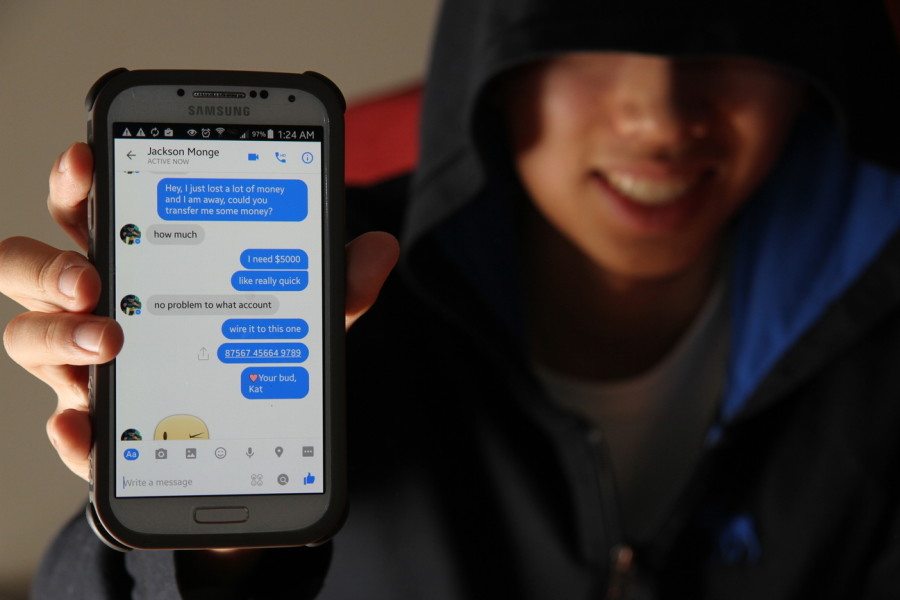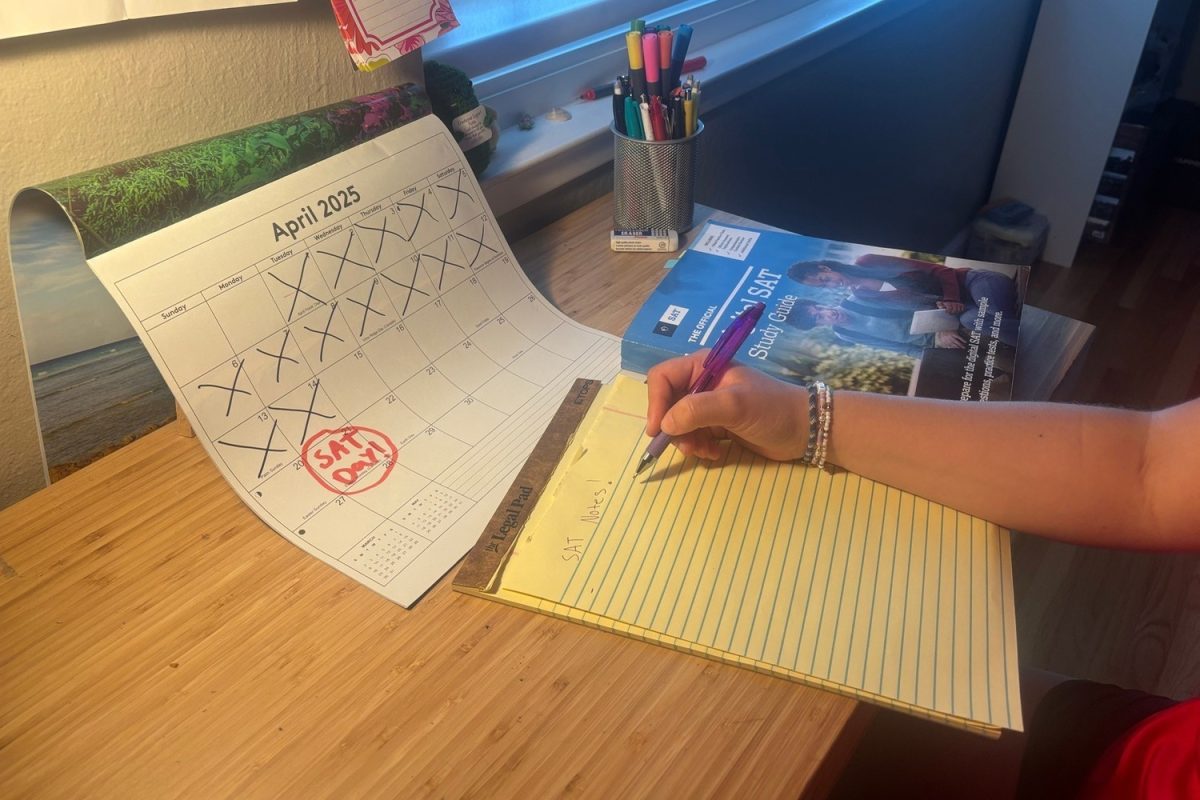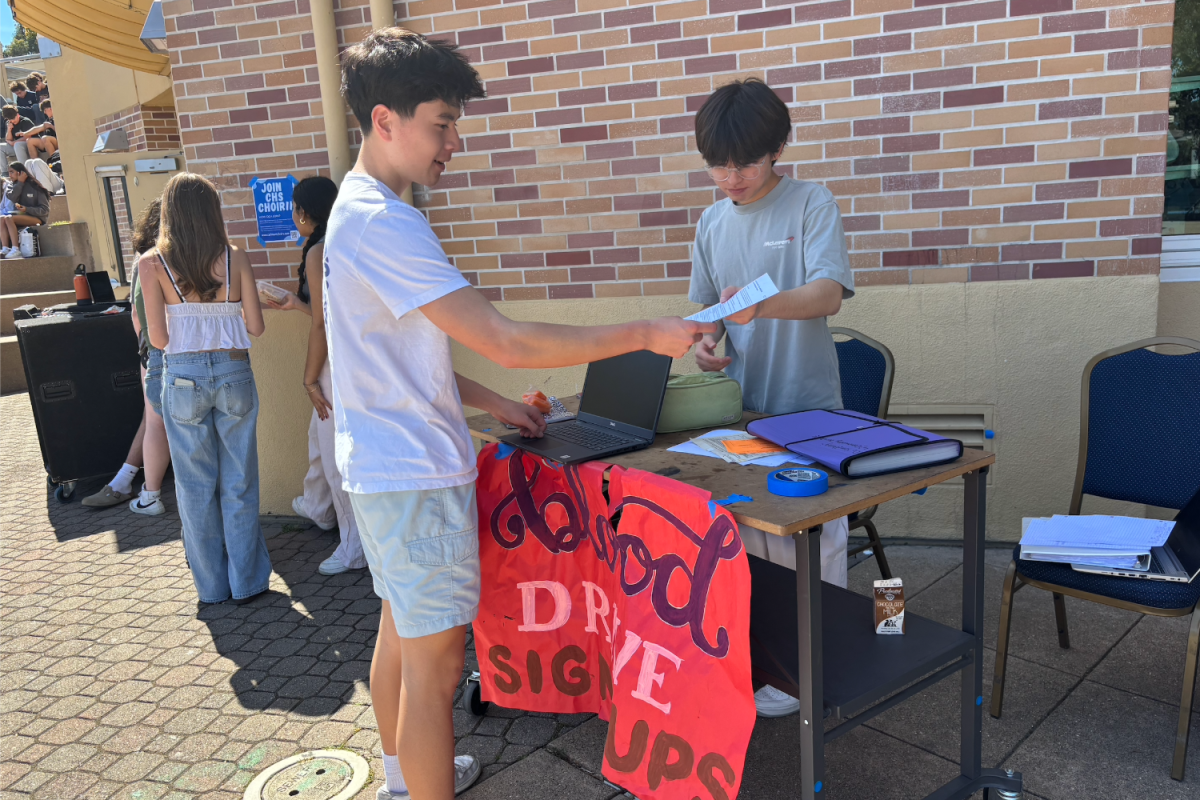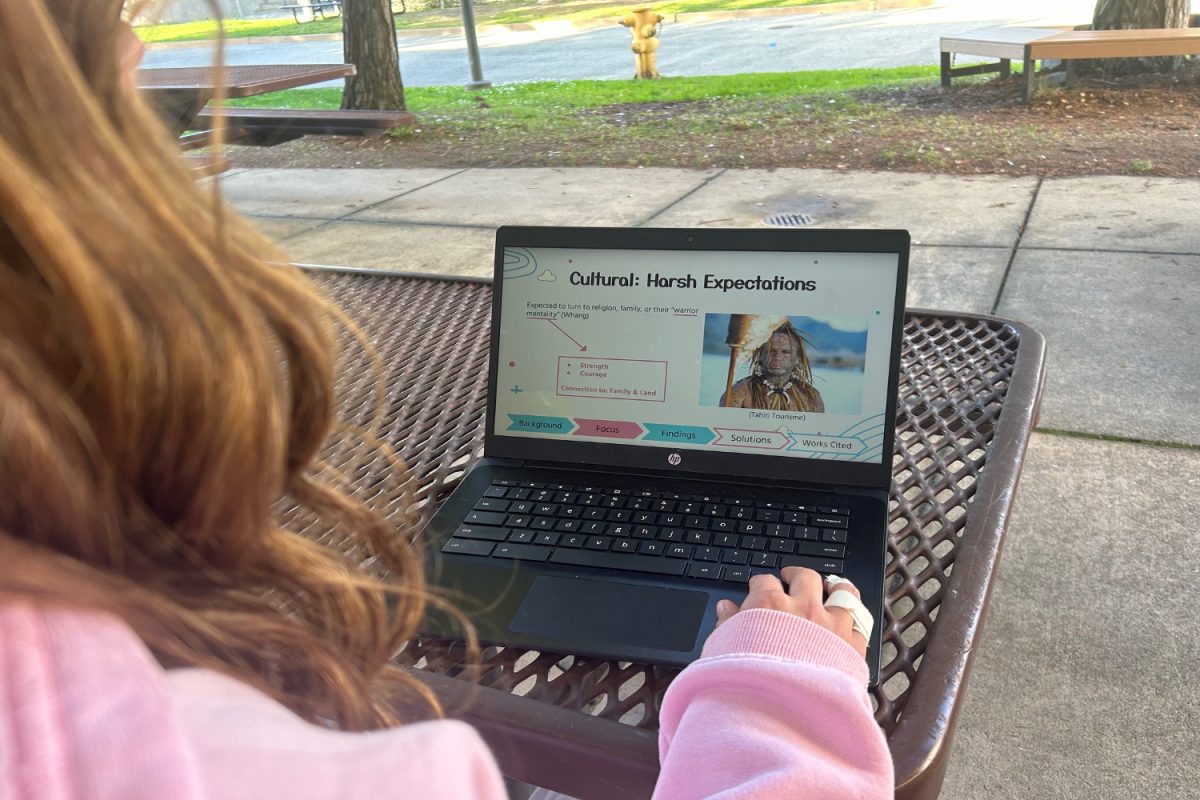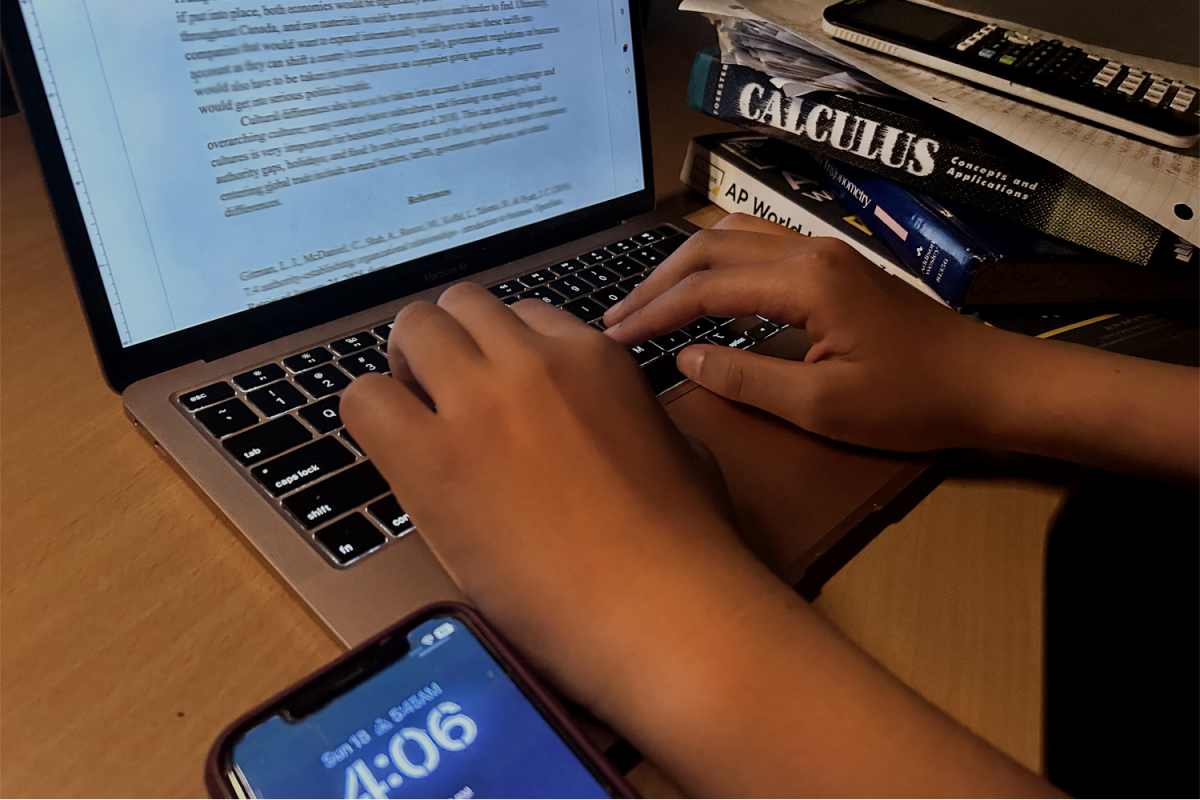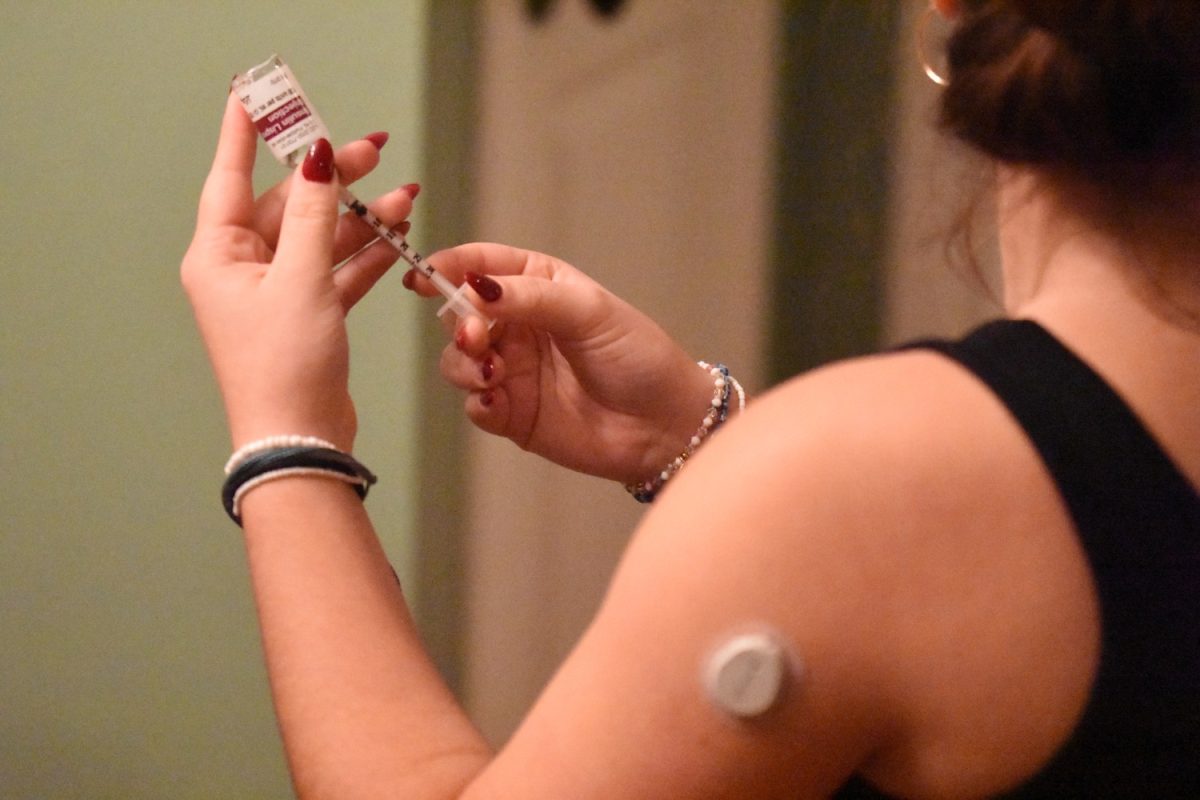In the modern age of technology, even seemingly free social media comes at a price.
As a result of the development of large companies like Facebook and Twitter, ecommerce and social media have become household items. These innovations allow for a greater sense of communication between friends and family.
However, these connections come with a downside — the problem of security, specifically the matter of hacking and data sharing itself.
Contrary to the promises made by computer security firms and social media policies, hacking has become a widespread threat to all who leave an internet fingerprint. Although most publicized hackings usually have to do with the data of large business enterprises, a significant percentage of hackings occur in social media.
According to the Ponemon Institute, over 432 million accounts across the world are hacked every day. Over 600,000 Facebook accounts are hacked each day, according to the Daily News.
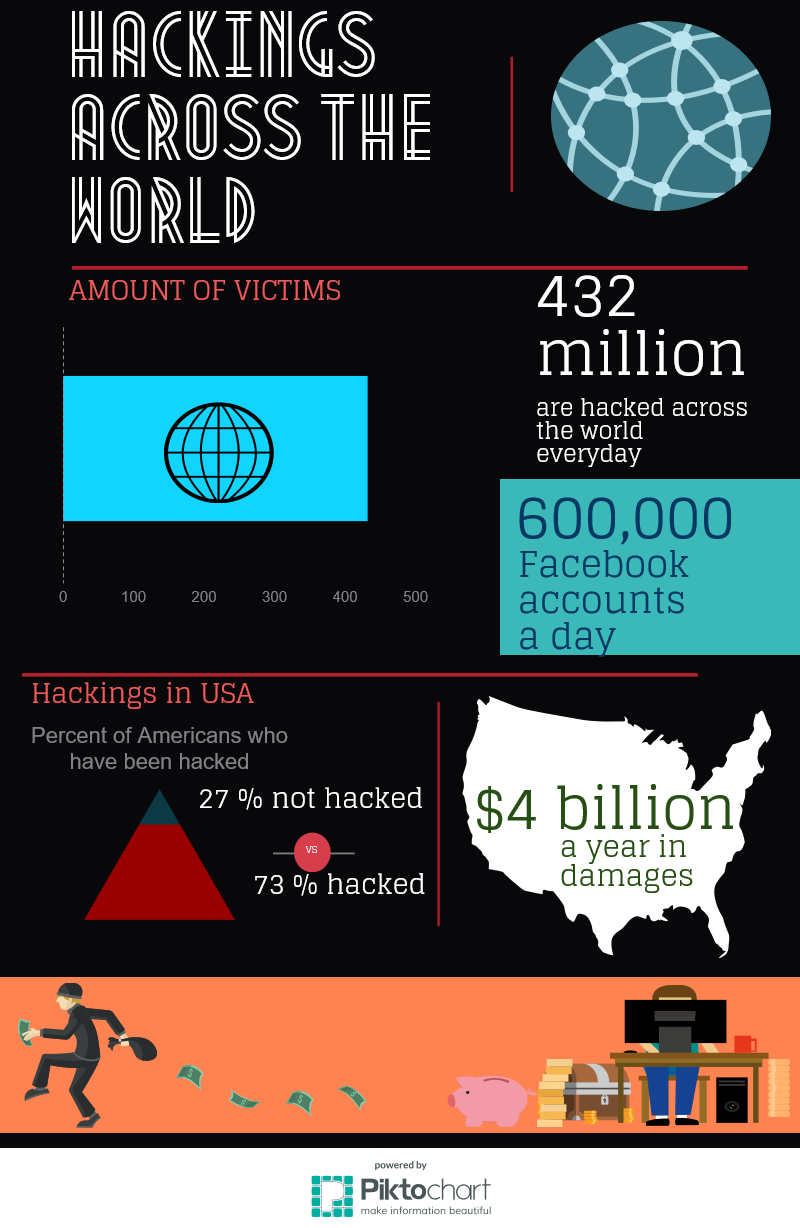
“I was confused at first because I didn’t know what had happened,” said senior Jacey Phipps, who had her Facebook account broken into. “I thought I was smart enough to avoid being hacked.”
Phipps’ Facebook account had begun posting comments without her knowledge, and when she did find out what was happening, she was very surprised.
“They posted random links to my Facebook and deleted some things,” said Phipps. “I then changed my password and [the activity] stopped.”
Changing a password is a common way to try to “reset” an account that has already been compromised, but by that time, it is often too late, since hackers have already used that account’s information to break into the victim’s other accounts.
According to BitDefender, over 75 percent of the population uses the same password for both email and social media. Because of this fact, this has become a much larger threat.
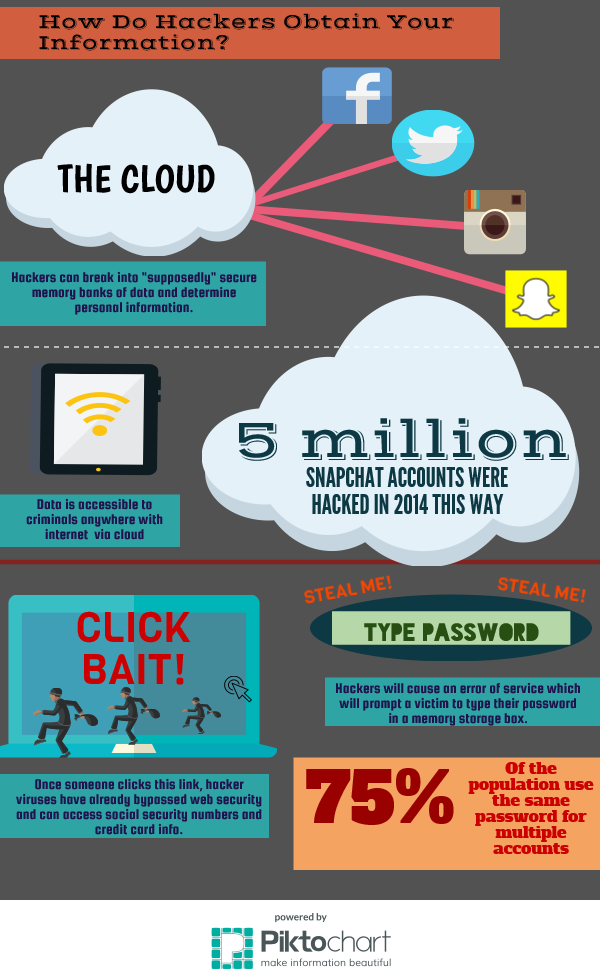
Sophomore Aiden Wantz said, “I don’t use social media if I don’t have to. [The sites’] security is easily broken into, and no one cares about this issue since their networks are free.”
The true danger of internet profiles lies in the information a person directly displays to the public. In order to create social media accounts, most companies ask for basic information like phone numbers and names.
However, this small amount of information is just enough to compromise a person’s identity. Even in the year 2013, it had already been proven possible to be able to link an anonymous picture of any person to a social media account and then to a social security number.
Alessandro Acquisti, a social economist working at Carnegie Mellon University, elaborated on such an experiment during a TEDx Global presentation.
“You can start from an anonymous face, and then link it to a public social media account,” said Acquisti. “And from this public information, we can then infer their social security number.”
The experiments that Acquisti conducted did not prove a definite immediate knowledge of a subject’s social security number. For 27 percent of the subjects, it took four attempts to figure out the first five numbers. Yet the threat of the connection between a random face and their personal information is still very real.
As for the matter of direct data hackings, popular social media companies claim that they have upgraded their privacy policies and security to prevent them from occurring. In fact, during the last few years, Facebook and Twitter have begun limiting the information on both pictures and posts by users via filters.
In the past though, these two social media moguls were the only major networks that needed worrying about. The addition of companies like Snapchat and Instagram have brought worry to the technology world.
The new question at hand is whether these social media companies truly delete information once an account is deactivated or photos are deleted. In 2014, hackers released over 13 GB of data of “deleted” Snapchat photos causing many users to feel that they had been violated.
Despite such incidents though, the majority of the population fails to read the policies and continue to create in-depth profiles.
“I [use] fake information just to avoid giving out my real personal information,” said Wantz. “That way, social media wouldn’t be able to give out my information even if they wanted to.”

